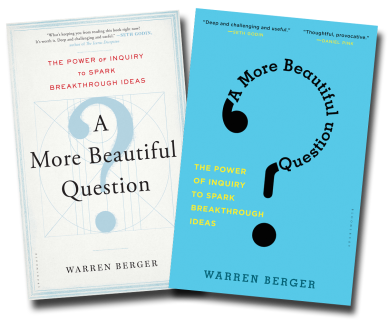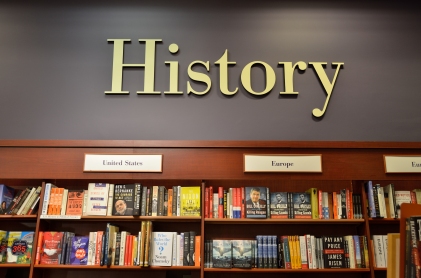“What you attempt to do if you knew you could not fail?” Warren Berger offers this well-traveled questions in his book A More Beautiful Question. Questions are the driving force of innovation, creativity, understanding, and so much more. So often the fear of failing or difficult answers keep us from pursuing what we truly believe in.
Questioning
The idea of asking questions in society can be a difficult thing. In many cases asking questions can be seen as negative and a challenging to authority. However, questions are key understanding wicked problems and creating change. As better questions are asked you are able to understand your problem and develop better answers.

Not knowing the answers to difficult questions often creates an uncomfortable feeling in people. Berger (2016) argues this feeling of grappling with a question is key to finding answers. Often, asking questions requires stepping back, “unplugging,” and find your own “tortoise enclosure.” By removing yourself from the internet and escaping distractions from the outside world you are forced to focus on your questions. Too often people rush to the internet to find answers and gain surface knowledge but never dive deeply into their questions. “A question could serve as the lever to pry open the stuck lid on a can of paint” (Berger, 2016, P. 204).
History and Questions
“Somewhere between ages four and five, children are ideally suited for questioning” (Berger, 2016, P. 42). Unfortunately for me, I teach middle and high school students where their questions have severally dropped off. Knowing this I want to be able to create an environment in which middle and high school students feel free to ask questions.
If you ask a History teacher, “why is History important?” The majority of the answers will include developing students into active citizens. What makes an active citizen? Participating in civic duties, creating positive change, thinking both locally and globally, moving society forward etc. I would argue good questioners should be near the top of this list. For students and people to be engaged in society, they should be asking difficult questions. Through asking the right questions they have the power to create change.

In United States History questioning is vital for students to understand the material. History is full of unknowns and asking questions can help students make connections throughout time periods. Understanding the History of a certain idea can allow for better questions to be asked. Students may want to know why certain things are the way they are today.
These are the questions students should be asking if they want to help create change. Specifically looking at ideas which have been around for generations, students are able to bring novice viewpoints and lead to new answers. The institution of slavery is an excellent example of questioning society. Students are confused by how the United States allowed slavery to exist for so long. Slavery had been an institution that had existed since people were born and did not question why it existed or even how they could get rid of slavery. Having to step back and question why things are the way they are and how you can change them is an extremely difficult task.
The Process
Asking questions is important but having a process to follow allows us to ask better questions. In his book, Berger shares the stories of innovators and how they were able to find their beautiful question. The process Berger (2016) refers to these questioners using is the Why, What if, How process.
The first question innovators start with is “Why.” These questions make it to where you are able to deconstruct your question and understand its parts. Why questions can stem from necessity, personal experience, or strike at seeming random times. All the beautiful questions Berger discusses started with why.
The next step in the process was to move to what if questions. What if questions allow you to develop potential solutions and creative answers. Adopting a novice viewpoint, or what Berger refers to as vuja de, is helpful in the what if stage. This type of thinking requires to look at a question from a new perspective or see something familiar for the first time (Berger 2016).

The last step is the how stage. Taking what you have learned from the why and what if questions and providing a solution and how to take action on your beautiful question. These solutions are often not a definitive solution and may undergo many iterations and still not fully answer your question.
Questioning is a vital skill in education, your career, and life. Knowing how to start and being comfortable with not knowing answers is a driving force of innovation. Success comes from asking questions, knowing the right questions to ask, and how to find solutions to these questions. A More Beautiful Question has inspired me to ask more questions and to question things I interact with daily.
________________________________________________________________________________
References
Berger, Warren. (2016). A More Beautiful Question: The Power of Inquiry to Spark Breakthrough Ideas. New York: Bloomsbury.